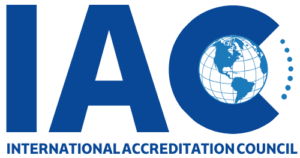ISO 50001
ISO 50001 is an international standard that specifies requirements for an Energy Management System (EnMS). The full title of the standard is ISO 50001:2018, “Energy management systems — Requirements with guidance for use.” The purpose of ISO 50001 is to help organizations establish systems and processes to improve energy performance, increase energy efficiency, and reduce energy consumption and associated greenhouse gas emissions.
Key elements and requirements of ISO 50001 include:
Scope: ISO 50001 is applicable to organizations of all sizes and types, in any industry or sector. It is designed to be adaptable to diverse organizational contexts.
Energy Policy: Organizations are required to establish an energy policy that outlines their commitment to energy performance improvement, legal and other requirements, and the setting of energy objectives and targets.
Energy Planning: The standard emphasizes the need for organizations to conduct an energy review to identify significant energy uses and areas for improvement. Energy planning involves setting measurable objectives and targets to achieve improvements in energy performance.
Implementation and Operation: ISO 50001 outlines requirements for implementing the energy management system, including roles, responsibilities, communication, and documentation. This includes the development and implementation of energy performance indicators (EnPIs) and energy baseline.
Monitoring and Measurement: Organizations must establish processes for monitoring and measuring energy performance against the energy objectives and targets. This involves regular data collection, analysis, and reporting.
Evaluation of Compliance: ISO 50001 requires organizations to evaluate compliance with legal requirements and other energy performance-related commitments.
Review of the Energy Management System: Top management is responsible for conducting regular reviews of the energy management system to ensure its continuing suitability, adequacy, effectiveness, and alignment with the organization’s strategic direction.
Continual Improvement: ISO 50001 promotes a culture of continual improvement. Organizations are expected to continually seek opportunities to improve energy performance and the effectiveness of the energy management system.
ISO 50001 follows the High-Level Structure (HLS) common to other ISO management system standards, making it compatible with standards such as ISO 9001 (Quality Management) and ISO 14001 (Environmental Management).
Certification to ISO 50001 is voluntary, but organizations may choose to undergo certification by accredited certification bodies to demonstrate compliance with the standard. Certification provides assurance to stakeholders that the organization is committed to systematically managing energy and improving its energy performance.
